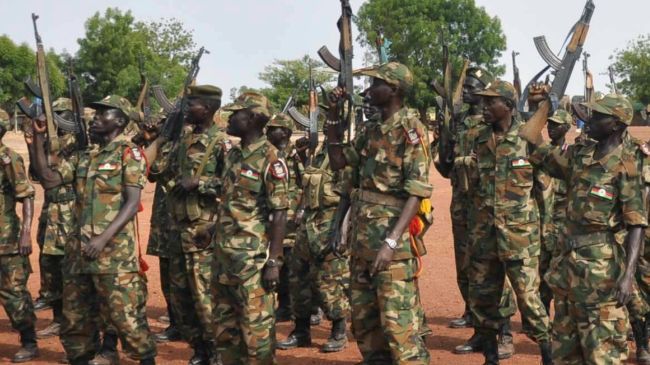
By Ifeanyi Ajuwa
In December 2015, the Nigerian Army raided Zakzaky’s
residence in Zaria and killed hundreds of his followers;
since then, he has remained under state detention in
the nation’s capital pending his release, which was
ordered by the court in late 2016.
Once again the Nigerian army has allegedly
surrounded another house, this time it is that of
Nnamdi Kanu the leader of the Indigenous People
of Biafra (IPOB). The latest report is that the army
invaded on Tuesday, September 12, in the early
hours.
As the scary drama once again plays out, what are
the likely consequences of this move? Based on
history and the past experiences in Nigeria, below
are some of them.
● 1. Arrest of Kanu and resulting crisis
In July 2009, the Nigerian military captured
Mohammed Yusuf the leader of the Boko Haram
sect at his parents-in-law’s house. They transferred
him to the custody of the Nigerian police force. The
police summarily executed Yusuf in public view
outside the police headquarters in Maiduguri.
What followed next is a tale of terrorism, bombing
and bloodshed that has lasted 8 years and cost
thousands of Nigerian lives.
If the Nigerian army toes the same line with
Nnamdi Kanu, then another uprising might just be
expected in Nigeria.
●2. Arrest of Nnamdi Kanu and the quelling of the Biafra
agitation
More than 350 IMN followers, led by firebrand
cleric Ibrahim Zakzaky, were killed in clashes with
the military in the northern town of Zaria in
December 2015. Since Zakzaky’s arrest, there have
been disturbances, but largely the Shiites have
been silent.
If the Nigerian army moves against Nnamdi Kanu
and arrest him, then it is likely that the Biafra
agitation will quieten down out of fear.
●3. Civil war
The Nigerian civil war in 1967 was a result of the
agitation for Biafra and the decision of the
Nigerian government to answer with military
action. There have been fears that the country
might be headed down the same path and the
deploying of Nigerian military to the South East
might be the spark that will ignite the fires of war.
● 4. International outrage
On November 24, 2016, Amnesty International, a
watchdog on crimes against humanity published a
report that Nigerian security forces, led by the
military, embarked on a chilling campaign of
extrajudicial executions and violence resulting in
the deaths of at least 150 peaceful pro-Biafra
protesters in the south east of the country.
Should there be a violent outcome as a result of
this current siege by the Nigerian army, it will not
be surprising to hear condemnations and calls for
sanctions by the international community.
Ajuwa writes from Lagos







